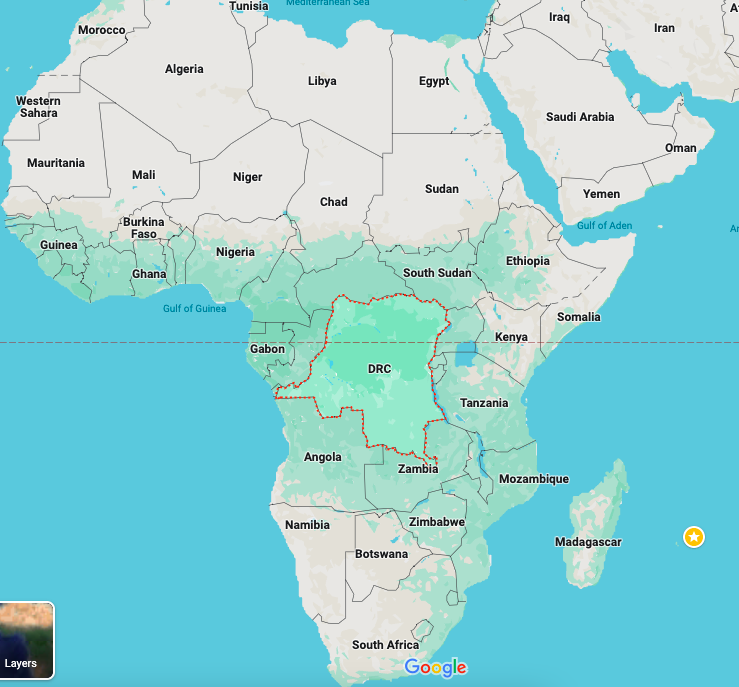The World Health Organization (WHO) has declared a public health emergency of international concern following an upsurge of mpox, also called monkeypox, in Africa. More than 17,000 cases have been reported and over 500 lives lost in 13 African countries since the beginning of the year — and now one case has been reported in Sweden and another in Pakistan.
Both the persons found to have the infectious disease caused by the monkeypox virus in Sweden and Pakistan arrived from abroad – the patient In Sweden from Africa and the one In Pakistan from Saudi Arabia.
However, a third case – reported in the Philippines – had no travel history.
Asian countries are heightening vigilance at international airports and ports for passengers displaying mpox systems, says Bloomberg.
🚨🚨 BREAKING NEWS 👇
The World Health Organization declares #mpox global health emergency.
WHO has declared the #monkeypox outbreak in parts of Africa a public health emergency of international concern. pic.twitter.com/yb21JkXY2j
— Crypto Aman (@cryptoamanclub) August 15, 2024
Three strains of mpox
Health experts are warning against three different strains of mpox, including one that swept across the world two years ago.
The WHO director-general Dr Tedros Adhanom Ghebreyesus said there had been more than 15,000 cases and over 500 deaths in the Democratic Republic of Congo (DRC) this year, ravaged by outbreaks of two different strains of mpox.
The first is an outbreak in northwestern DRC of what was previously known as clade 1, now called clade 1a, which is endemic in that part of the country. Primarily affecting children, it has spread to the Central African Republic and the Republic of Congo,
The second is an outbreak in northeastern DRC of a new variant called clade 1b, first detected in September last year and spreading rapidly, mainly through sexual transmission among adults.
In the past month, more than 100 cases of clade 1b have also been detected in four countries neighbouring DRC that had not previously reported mpox: Burundi, Kenya, Rwanda, and Uganda.
Also causing concern is the return of clade 2, another strain of mpox reported from Cameroon, Côte d’Ivoire, Liberia, Nigeria and South Africa.
The 2022 mpox outbreak
Clade 2 was the strain detected in a global outbreak of mpox two years ago, In 2022.
The WHO then declared a public health emergency in July 2022, deploying contact-tracing and mass vaccination. The emergency was lifted in May 2023 after about 90,000 infections.
Gay and bisexual men made up the vast majority of cases during the 2022 outbreak, when the virus was mostly spread through close contact.
Children under 15 now account for more than 70% of the mpox cases and 85% of deaths in Congo.
The WHO is collaborating with global partners to speed up vaccine distribution and implement safety measures.
Professor Dimie Ogoina, chairing the International Health Regulations Emergency Committee of independent experts, said: “The current upsurge of mpox in parts of Africa, along with the spread of a new sexually transmissible strain of the monkeypox virus, is an emergency, not only for Africa, but for the entire globe. Mpox, originating in Africa, was neglected there, and later caused a global outbreak in 2022. It is time to act decisively to prevent history from repeating itself.”
Similar to smallpox
The WHO says the monkeypox virus causes mpox (monkeypox), a disease with symptoms similar to smallpox, although less severe. While smallpox was eradicated in 1980, mpox continues to occur in countries of central and west Africa. Since May 2022, cases have also been reported from countries outside the region.
Mpox is a zoonosis, a disease transmitted from animals to humans, with cases often found near tropical rainforests. Evidence of monkeypox virus infection has been found in animals, including squirrels, dormice and different species of monkeys.
The disease can also spread from one person to another. It can be transmitted through contact with bodily fluids, lesions on the skin or on internal mucosal surfaces, such as in the mouth or throat, respiratory droplets and contaminated objects.

